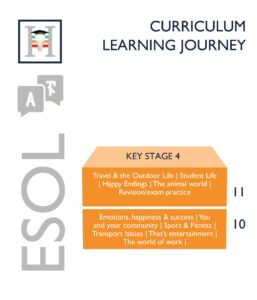English has a pre-eminent place in education and in society. A high-quality education in English will teach pupils to speak and write fluently so that they can communicate their ideas and emotions to others and through their reading and listening, others can communicate with them. Through reading in particular, pupils have a chance to develop culturally, emotionally, intellectually, socially and spiritually. Literature, especially, plays a key role in such development. Reading also enables pupils both to acquire knowledge and to build on what they already know. All the skills of language are essential to participating fully as a member of society; pupils, therefore, who do not learn to speak, read and write fluently and confidently are effectively disenfranchised.
Aims
The overarching aim for English in the national curriculum is to promote high standards of language and literacy by equipping pupils with a strong command of the spoken and written word, and to develop their love of literature through widespread reading for enjoyment. The national curriculum for English aims to ensure that all pupils:
- Read easily, fluently and with good understanding
- Develop the habit of reading widely and often, for both pleasure and information
- Acquire a wide vocabulary, an understanding of grammar and knowledge of linguistic conventions for reading, writing and spoken language
- Appreciate our rich and varied literary heritage
- Write clearly, accurately and coherently, adapting their language and style in and for a range of contexts, purposes and audiences
- Use discussion in order to learn; they should be able to elaborate and explain clearly their understanding and ideas
are competent in the arts of speaking and listening, making formal presentations, demonstrating to others and participating in debate.
Spoken language
The national curriculum for English reflects the importance of spoken language in pupils’ development across the whole curriculum – cognitively, socially and linguistically. Spoken language continues to underpin the development of pupils’ reading and writing during key stage 3 and 4 and teachers should therefore ensure pupils’ confidence and competence in this area continue to develop. Pupils should be taught to understand and use the conventions for discussion and debate, as well as continuing to develop their skills in working collaboratively with their peers to discuss reading, writing and speech across the curriculum.
Reading and writing
Reading at key stage 3 and 4 should be wide, varied and challenging. Pupils should be expected to read whole books, to read in depth and to read for pleasure and information.
Pupils should continue to develop their knowledge of and skills in writing, refining their drafting skills and developing resilience to write at length. They should be taught to write formal and academic essays as well as writing imaginatively. They should be taught to write for a variety of purposes and audiences across a range of contexts. This requires an increasingly wide knowledge of vocabulary and grammar.
Opportunities for teachers to enhance pupils’ vocabulary will arise naturally from their reading and writing. Teachers should show pupils how to understand the relationships between words, how to understand nuances in meaning, and how to develop their understanding of, and ability to use, figurative language.
Pupils should be taught to control their speaking and writing consciously, understand why sentences are constructed as they are and to use Standard English. They should understand and use age-appropriate vocabulary, including linguistic and literary terminology, for discussing their reading, writing and spoken language. This involves consolidation, practice and discussion of language. It is important that pupils learn the correct grammatical terms in English and that these terms are integrated within teaching.
Teachers should build on the knowledge and skills that pupils have been taught at previous key stages. Decisions about progression should be based on the security of pupils’ linguistic knowledge, skills and understanding and their readiness to progress to the next stage. Pupils whose linguistic development is more advanced should be challenged through being offered opportunities for increased breadth and depth in reading and writing. Those who are less fluent should consolidate their knowledge, understanding and skills, including through additional practice.



